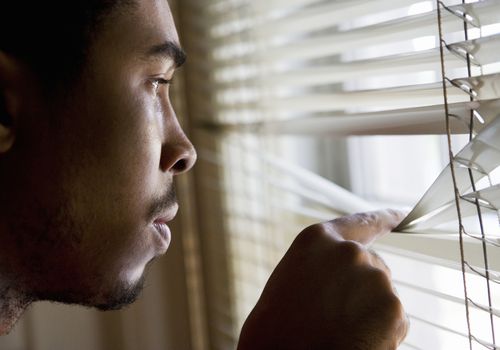Misdiagnosis is a common issue for many mental health conditions, including OCD. It is estimated that 50% of all cases of OCD are misdiagnosed. This can be extremely frustrating and discouraging for those who are struggling with OCD and have not received the correct diagnosis. In this article, we will discuss how to get the correct diagnosis for OCD and what to do if you have been misdiagnosed in the past.
Contents
Why Is OCD Misdiagnosed?
 It is very common for OCD to be misdiagnosed as something else. This is because many of the symptoms of OCD are similar to other disorders, such as anxiety disorders, depression, and even ADHD. In addition, many people with OCD do not realize that they have a problem until it starts to interfere with their daily life.
It is very common for OCD to be misdiagnosed as something else. This is because many of the symptoms of OCD are similar to other disorders, such as anxiety disorders, depression, and even ADHD. In addition, many people with OCD do not realize that they have a problem until it starts to interfere with their daily life.
More often, it feels like if you’re having OCD symptoms for the first time in your life, you may have developed the disorder overnight. When in reality, it is very common for OCD to develop over a period of years. However, if you feel this then maybe your symptoms are increasing, or you are noticing them more, which is why it seems like it’s happening all of a sudden.
There are several reasons why OCD is often misdiagnosed:
Doctor Is Not Familiar With OCD Symptoms
It is the foremost reason why OCD is misdiagnosed. Many mental health professionals are not familiar with the symptoms of OCD. And even if they’re not familiar they do not give it the importance it deserves. They may brush off the symptoms as something else or not worth their time. There are some cases, where a therapist is not willing to treat a patient with OCD because they do not have the experience or knowledge to do so. But still, they misdiagnosed the patient with OCD.
Patient Is Not Honest About Symptoms
Many people with OCD are not honest about their symptoms because they are embarrassed or ashamed. They might downplay their symptoms or avoid talking about them altogether. This can make it difficult for doctors to accurately diagnose OCD. Because on an upper level, the symptoms of mental disorders like OCD, can be hard to understand. So if the patient is not providing honest information, it will be more challenging for doctors to give an accurate diagnosis.
OCD Misdiagnosed as Depression or Anxiety
Depression and anxiety are two of the most common disorders that can be mistaken for OCD. This is because many of the symptoms of OCD, such as intrusive thoughts, worry, and avoidance, are also symptoms of these disorders. In addition, this disorder is often comorbid with depression and anxiety, which means that people with OCD often have these disorders as well. So, it can be hard to distinguish between the two.
Lack Of Awareness About OCD
 There is a lack of awareness about OCD, both among the general public and mental health professionals. This lack of awareness can lead to OCD being misdiagnosed. Because people do not know what to look for when it comes to OCD symptoms. In fact, many people with OCD do not even realize that they have a problem until it starts to interfere with their daily life.
There is a lack of awareness about OCD, both among the general public and mental health professionals. This lack of awareness can lead to OCD being misdiagnosed. Because people do not know what to look for when it comes to OCD symptoms. In fact, many people with OCD do not even realize that they have a problem until it starts to interfere with their daily life.
If you think you might have OCD, it is important to see a mental health professional who is familiar with the disorder. They will be able to accurately diagnose you and provide the proper treatment. Getting the correct diagnosis is essential for managing OCD and improving your quality of life.
What Are The Consequences Of OCD Misdiagnosed?
There are a number of consequences that can occur when OCD is misdiagnosed.
- First and foremost, the individual suffering from OCD does not receive the proper treatment for their condition. This can prolong and exacerbate the symptoms of OCD, making it more difficult to manage on a day-to-day basis.
- Additionally, misdiagnosis can lead to feelings of shame, isolation, and despair. Sufferers may feel like they are “crazy” or that no one understands them. This eventually compounds the difficulties associated with living with OCD.
- Also, misdiagnosis can also result in financial burdens related to seeking out treatments that are not effective for OCD.
- Then, of course, there are the societal implications of living with a mental illness that is not properly diagnosed or treated.
If you suspect you or someone you love may be suffering from OCD. It is important to seek professional help. An accurate diagnosis is critical in order to get the proper treatment and support. But this is not always easy, as OCD can be tricky to diagnose.
There are a number of different types of mental health professionals who can diagnose and treat OCD. However, not all mental health professionals are familiar with the latest research on OCD and its treatment. This is why it is so important to seek out a professional who specializes in treating OCD.
How To Get The Right Diagnosis For OCD?
 When you are already being OCD misdiagnosed then you will need to be your own health advocate. It is not easy living with OCD, and when you don’t have a proper diagnosis, it can be even harder. Here are some tips to get the right diagnosis for OCD.
When you are already being OCD misdiagnosed then you will need to be your own health advocate. It is not easy living with OCD, and when you don’t have a proper diagnosis, it can be even harder. Here are some tips to get the right diagnosis for OCD.
See a board-certified psychiatrist
Certified psychiatrist in your area that specializes in OCD. He or she will be able to give you the right diagnosis. It is important to get the right diagnosis so you can be treated properly. Moreover, a certified psychiatrist will also be able to rule out other disorders that may have similar symptoms to OCD. Because they’re experts in the field, they will know how to distinguish one from the other.
Talk to your family and friends
Your family and friends might know something that you don’t. They might have noticed some things that you haven’t. So, it is important to talk to them about your OCD so they can help you get the right diagnosis. In fact, family and friends are often the ones who even encourage you to seek professional help in the first place.
Keep a journal
You might want to keep a journal of your OCD symptoms. This will be helpful for your psychiatrist in making an accurate diagnosis. Moreover, it will also help you see how your OCD is affecting your life and what triggers your symptoms. This will eventually help you in your treatment. Because it can be difficult to remember all the details and symptoms of OCD, a journal will be a great way to keep track of everything.
Get a second opinion
If you’re still unsure about your diagnosis, then it is important to get a second opinion. This is especially true if you feel like your current treatment isn’t working. A second opinion will also help you confirm whether or not you actually have OCD. So, don’t be afraid to get a second opinion from another psychiatrist.
Do your own research
You need to educate yourself about OCD first in order to find the right diagnosis. Because there is a lot of information out there, it can be overwhelming. But, it is important to read as much as you can about OCD so you can be more informed. This way, you’ll know what to look for in a psychiatrist and what questions to ask. Moreover, you’ll also be more prepared to discuss your symptoms with a professional. In fact, there are several online diagnosis tests for OCD that can help you get started.
Be persistent
Is your OCD misdiagnosed? Don’t give up. It is important to be your own advocate and to keep looking for the right diagnosis. Being persistent means that you won’t give up until you find the answers you’re looking for. So, don’t be afraid to keep searching until you get the help you need. There are other options and other professionals out there who can help you.
Discuss your symptoms openly and honestly
 When you find the right psychiatrist, it is important to be open and honest about your symptoms. This way, he or she will be able to accurately diagnose you and give you the proper treatment. Moreover, being open and honest about your OCD will also help you in your treatment. Because if you’re not honest about your symptoms, then it will be difficult to get better.
When you find the right psychiatrist, it is important to be open and honest about your symptoms. This way, he or she will be able to accurately diagnose you and give you the proper treatment. Moreover, being open and honest about your OCD will also help you in your treatment. Because if you’re not honest about your symptoms, then it will be difficult to get better.
When your OCD is misdiagnosed by a professional, it can be difficult to know what to do next. But, by following these tips, you’ll be on your way to getting the right diagnosis for OCD. Remember, you are not alone in this and there are people who can help you. So, don’t give up and keep searching for the answers you need.
What Is The Correct OCD Diagnosis?
There are many different types of OCD, and each type has its own set of symptoms. In order to get the correct diagnosis for OCD, it is important to see a mental health professional who is familiar with the different types of OCD.
Moreover, the process of diagnosis usually involves a thorough interview in order to rule out other possible disorders. The mental health professional will also ask about the person’s thoughts, feelings, and behaviors. This process is usually followed by a physical exam and/or lab tests. And also known as a clinical diagnosis.
In clinical diagnosis, a professional will look at all the information they can find on a person. This includes looking at medical history, family history, and mental health history. They will also look at how the person is currently functioning. All of this information helps to rule out other disorders and make a diagnosis of OCD. They even ask about your compulsions and obsessions.
A correct diagnosis of OCD is important in order to get the correct treatment. If you’re OCD misdiagnosed at first, you may not get the proper treatment that you need. This can lead to a worsening of your symptoms and a decrease in your quality of life. So it’s important to see a mental health professional who is familiar with OCD and can give you an accurate diagnosis.
Conclusion
To conclude, OCD misdiagnosed is a problem that is unfortunately all too common. If you or someone you know is struggling with OCD, it is important to seek professional help in order to get an accurate diagnosis and effective treatment. Remember, there is no shame in seeking help, and receiving the correct diagnosis can make all the difference in managing OCD effectively.
Because the right diagnosis is the key to the right treatment, which can make all the difference in managing OCD effectively. So, if you or someone you know is struggling with OCD, don’t hesitate to seek professional help. The sooner you get an accurate diagnosis, the sooner you can start living a happier, healthier life. Thanks for reading!
If you are looking for affordable Online OCD Counseling MantraCare can help: Book a trial OCD therapy session


